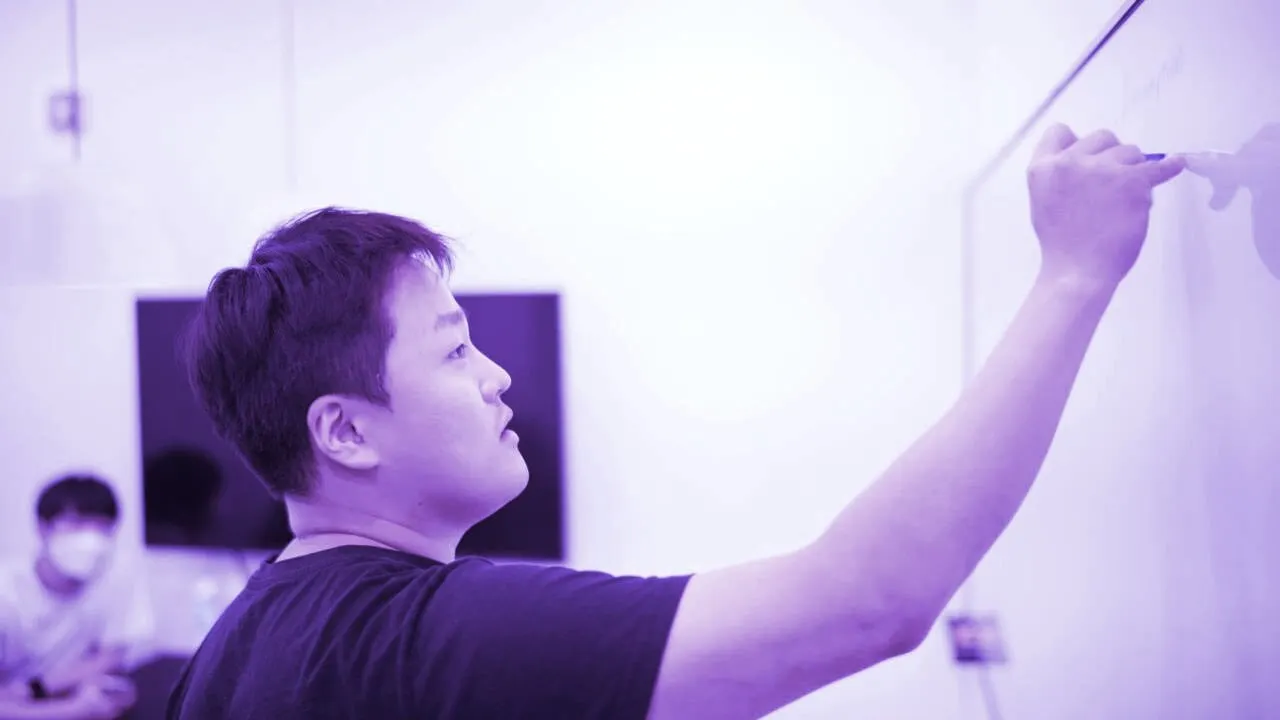Terraform Labs CEO Do Kwon’s location is still “unknown,” according to the Securities and Exchange Commission’s lawsuit, which claims he fabricated details to supercharge growth on the Terra ecosystem before its collapse in 2022.
Do Kwon co-founded Terraform Labs with Daniel Shin in 2018, a year before they launched the Terra network. The company also created TerraUSD (UST), an algorithmic stablecoin. By April 2022, its market capitalization had reached $17 billion and it unseated Binance USD as the third-largest stablecoin in circulation, according to CoinGecko.
But in May, UST lost its dollar peg. In a matter of days, $40 billion worth of value had been wiped out and the Terra network was shut down.
Now the SEC is bringing down the hammer. Here's what's in its lawsuit.
10,000 Bitcoin
The SEC alleges many of the claims Kwon made about Terra were simply made up. Among the more startling claims, the Commission alleges that Kwon transferred 10,000 Bitcoin (BTC) out of Terraform Labs and Luna Foundation Guard (LFG) to a Swiss bank account. That's a stash worth almost $250 million at today's prices.
According to the SEC, Kwon has been transferring BTC from wallets belonging to TerraForm and LFG to a Swiss bank account, where he’s been converting it to cash.
“Between June 2022 and the date of this complaint, over $100 million in fiat currency has been withdrawn from that Swiss bank,” the SEC writes in its lawsuit.
If true, it stands in stark contrast to the investors who lost huge amounts of money when UST crashed last year. The SEC lawsuit specifically mentions a pharmacist in California who borrowed $400,000 against their home to purchase UST and a painter in Vermont who invested $20,000 that was otherwise earmarked for his son’s college tuition.
The Chai lie
On the road to becoming the third-largest stablecoin, Kwon made some big claims about the Terra network and UST.
But Terra’s partnership with payments app Chai didn’t involve the kind of integration that Kwon promised, the SEC wrote in its lawsuit. It’s a big allegation to make considering that Chai founder Daniel Shin also cofounded Terraform with Kwon in 2018.
In 2019, Terra announced its partnership with Chai, writing in a blog post it would “rebuild the payments stack on the blockchain to simplify the legacy payment system and provide transaction fees at a discounted rate to merchants.”
The company estimated the deal would result in processing “millions—if not billions—in transaction volume.”
The SEC alleges that Terra never replaced Chai’s payment systems.
“Chai payments did not use the Terraform blockchain to process and settle payments,” the SEC wrote in its complaint. “Rather, Defendants deceptively replicated Chai payments onto the Terraform blockchain, in order to make it appear that they were occurring on the Terraform blockchain, when, in fact, Chai payments were made through traditional means.”
Members of the industry have since said that it was a poorly kept secret that Chai wasn’t really using Terra to facilitate payments.
“Fraud case is rock solid. Chai using Terra was a complete fabrication, with fake on-chain transactions and everything,” Haseeb Qureshi, managing partner at venture capital firm Dragonfly, wrote on Twitter. ”I was surprised by how egregious this was. People at Terraform Labs knew it was bullshit.”
The SEC’s lawsuit names TerraForm Labs and Kwon, but not Shin.
Since Terra collapsed in May, Shin’s home in Seoul has been raided. In December, Shin appeared at a court hearing to decide whether he should be arrested for extracting illegal profits from Terra ahead of its collapse. South Korean prosecutors accused him of selling $105 million worth of LUNA tokens, according to a report in The Korea Times.
A stable con
The lawsuit also alleges that in May 2021, one year before Terra would ultimately collapse, Kwon falsely claimed that the TerraUSD (UST) algorithm helped it regain its one-to-one peg with the U.S. dollar after losing it during a flash crash. “$UST exhibited extreme peg stability during the 60% price drop,” Kwon wrote on Twitter at the time.
4/ While drawdowns are painful, $UST exhibited extreme peg stability during the 60% price drop, and @anchor_protocol maintained its core solvency mandate and continues to offer 18-20% yield due to drastic falls in the utilization ratio, drawing down on its yield reserves.
— Do Kwon 🌕 (@stablekwon) May 20, 2021
Instead, the SEC alleges, Kwon “secretly discussed plans with a third party,” which the SEC does not name, to buy a large portion of UST to boost its price. But afterward, Kwon bragged that there had been no human intervention.
According to reports, the unnamed trading firm in the SEC's lawsuit was Jump Crypto, which walked away with $1.2 billion in profits from the scheme, per the SEC.

